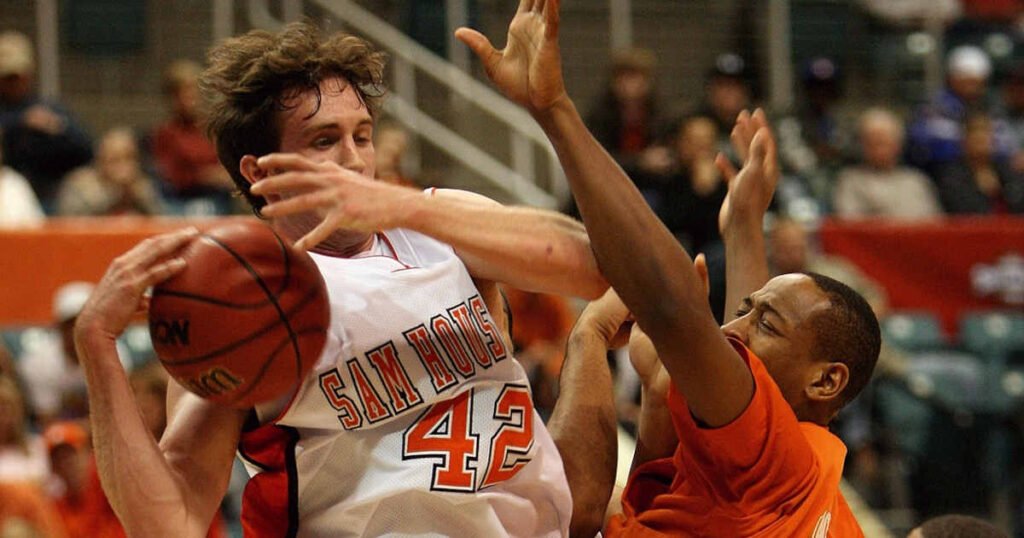A charge in basketball is an offensive foul that happens when an offensive player charges (makes significant physical contact) into a defender who has established a legal guardian position (with both feet on the floor and with their torso and feet facing the opponent). A foul can be called with or without a ball.
An exception to the rule is when a guardian’s position isn’t perfectly established and an offensive player is too aggressive with physical contact (meaning shoulders and elbows). The referee will then call it even, not a charge.
The penalty for a charge is a personal foul and a play resulting in a turnover. Even if the team that draws the charge is in the bonus, they only gain possession of the ball and do not shoot any free throws.
A charge can be mistaken for a block. A block in basketball is a defensive foul that occurs in situations when a defender isn’t in their legal guardian position, initiates physical contact first, is in a restricted area, or refuses to give enough proper space for an offensive player with a ball. It can be called a foul when shooting or dribbling.
When a defensive player assumes a legal guardian position, they can move backward or sideways. They do not need to be still for a foul to be justified. But they must not make contact while moving forward toward the offensive player. In some cases, if the contact between players is minimal, the referee may choose not to call a charge or a block, which is known as a ‘no-call ‘.
Both fouls, a charge and a block, highlight the importance of contact in the game that can spiral in the blink of an eye, making the players think before initiating physical contact that can potentially lead to injury. The best way to avoid a charge is a jump stop.
- The 1958 NFL Championship and “The Greatest Game Ever Played” – TBT #24 - May 15, 2025
- Youngster Pele’s World Cup Final Performance Leaves Everyone in Awe – TBT #23 - November 14, 2024
- Ranking the Top 10 Worst NBA Trades Ever – Biggest Regrets That NBA Teams Made - November 13, 2024
